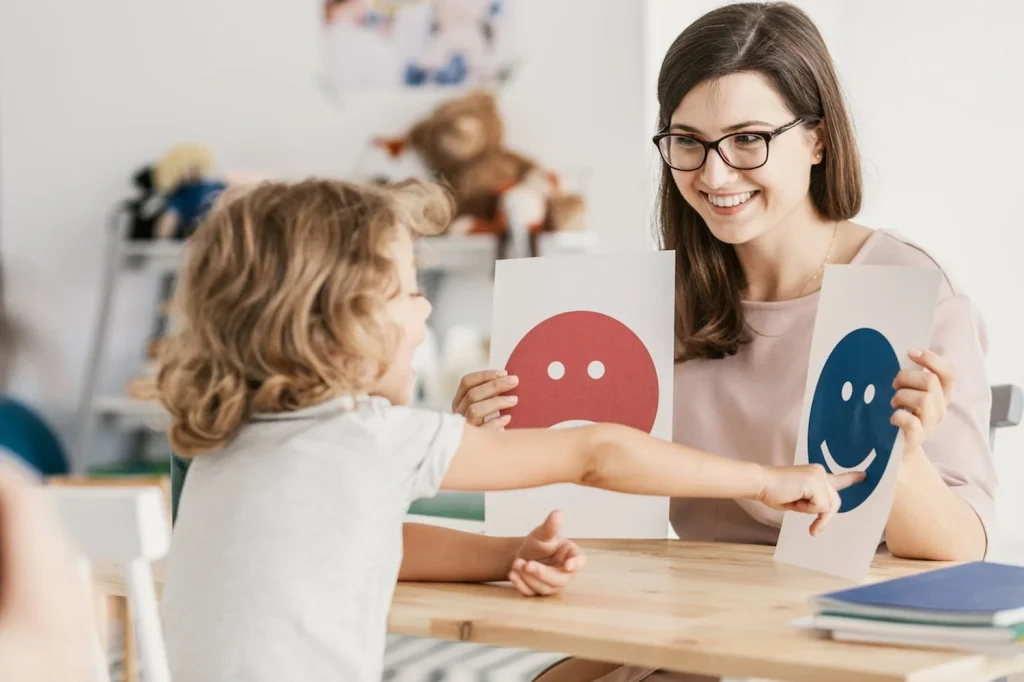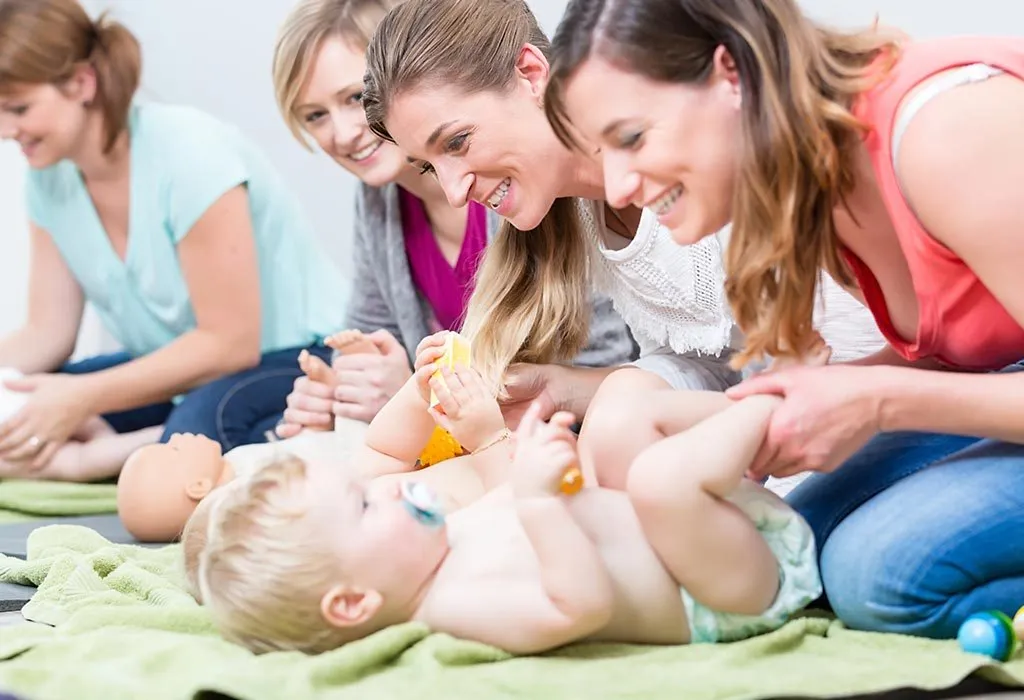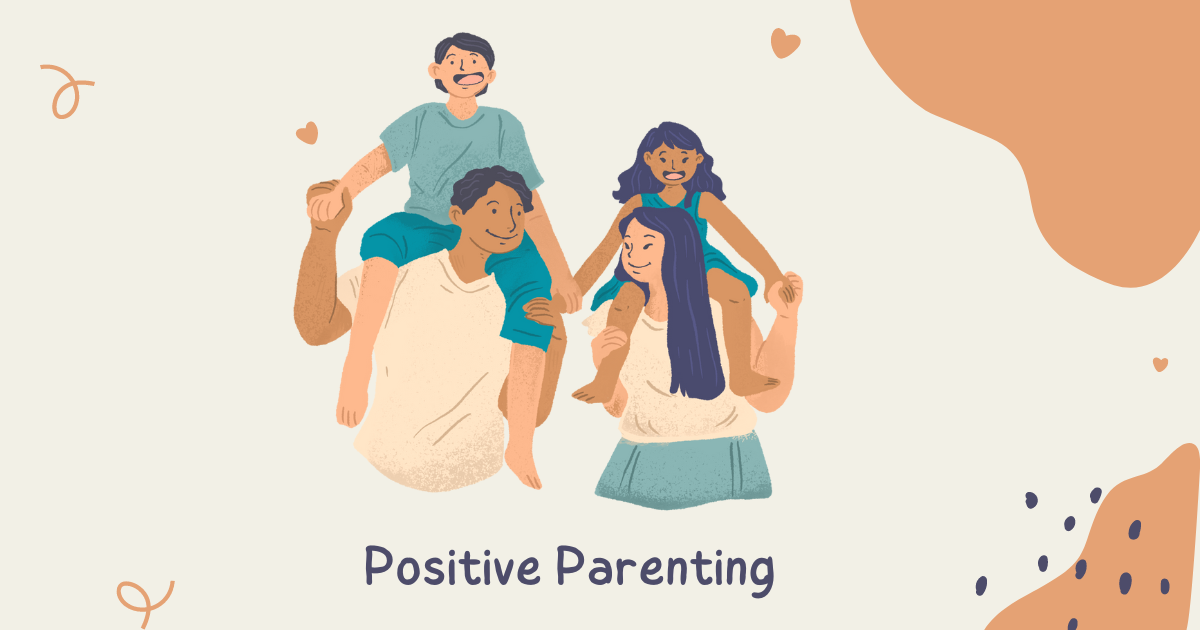Introduction
Positive parenting is a philosophy of child rearing that revolves around respect, encouragement and non-punitive discipline. Its goal is to establish an atmosphere of care for children, which would enhance their emotional, social and cognitive growth.
Why positive parenting?
Positive parenting solutions are important in creating a healthy nurturing environment to help children which is crucial for their overall development. Promoting mutual respect, positive Reinforcement and non-punitive discipline, creates a strong bond between parents and children. This method helps kids have high self esteem emotional intelligence and better social skills.
Parenting expert methods also reduce behavioral problems while making the family more peaceful. In addition, implementing positive parenting strategies supports mental health and wellbeing among children, thereby setting them up for lifelong success and happiness.
Principles of Positive Parenting
Respect
Parents should treat their children with respect as individuals who have feelings of their own. They should listen actively to what their children say while appreciating it when they contribute towards the decision-making process at home or school.
For example, this principle fosters trust between parents and kids, thus building supportive relationships where communication is enhanced, leading to fewer conflicts.

Reinforcement
It is important to encourage good behavior through praise or rewards otherwise known as Reinforcement. Positive Reinforcement lets children know what behavior is wanted from them, hence motivating them to do so again through appreciation, either physically or verbally.
This boosts their self esteem because they feel valued whenever they accomplish something right. Consequently over time such actions become part of them always.
Discipline without Punishment
The non-punitive discipline focuses on teaching rather than punishing, where parents use techniques such as time outs, natural consequences, etc., when dealing with misbehavior but not hurting or shaming the child.
Punishments can make kids to listen with fear of adults or resent them; instead, problem-solving discussions regarding mistakes made by children help them learn how those affected others around them without any kind of grudges against anyone. This method also makes a child think critically about his behavior hence developing responsibility and empathy.
Consistency and Predictability
Positive parent requires that rules to be the same all the time irrespective of situation or place, which means parents need to remain consistent with their expectations towards kids so that they can easily understand what is anticipated from them at any given moment.
Consistency makes children feel safe because when this happens, it lowers anxiety levels within them since they are able to predict the response(s) by their parent(s). This steady environment supports good emotional well-being as well as proper conduct among young ones.
Emotional Support
Another key component of parenting is providing emotional support for the child to built positive relationship. Parents acknowledge and validate their children’s feelings, offering comfort and understanding. They do this by creating an environment where they can express themselves freely without being judged or criticized.
Emotional support helps kids develop resilience because through it they learn how manage different types of emotions thereby building healthy relationships with others too. A child who receives enough emotional backing tends to be healthier in general than those whose needs aren’t met adequately.

Positive Parenting Tips
Setting clear boundaries
Parents should establish specific limits communicated consistently over time so that children always know what is expected of them. This provides structure and security around youngsters’ lives, thus preventing confusion concerning appropriate behaviors to engage in under various circumstances.
Boundaries also promote self-discipline because when a person understands where he or she should stop doing something wrong, then chances are high that such actions won’t be repeated next time. Encouraging open communication
Use Positive Words
Positive language is important in guiding children’s behavior. Instead of telling them what not to do, parents should focus on and commend positive behaviors. Verbal praise, rewards, and celebrating achievements can be examples of positive Reinforcement.
Such a way of speaking motivates children to repeat good deeds and helps them foster a healthy self-image.
Be Their Role Model
Parents should lead by example, showing the behaviours and attitudes they want their children to portray. Everyday interaction calls for respect, empathy, and patience, among others, that should be demonstrated by adults towards kids.
Since children are likely to copy what their parents do more than listen to what they say, it is therefore important for mothers and fathers or guardians to act positively at all times early enough because this sets strong foundations for personal growth in later years, too.

Focus on Building Connections
Positive parenting requires building emotional connections with children to ensure their wellbeing. Quality time spent together creates a bond that cannot be easily broken between parents and kids, while participating in different activities does strengthen it even further; thus, showing genuine concern about what they are going through strengthens this attachment too.
Accordingly, positive experiences need to be made a top priority always since once there exists a strong connection based on trust, then any problem can easily dealt with.
Positive Discipline
Positive discipline is all about teaching children instead of punishing them. It means establishing clear expectations and giving guidance to help children understand the consequences of their behaviour. This approach promotes problem-solving skills and nurtures a sense of responsibility as well as self-control.
Through positive discipline, parents can create an atmosphere that is respectful and supportive, where kids are encouraged to cooperate with others. Techniques such as time-ins, natural consequences, and setting limits commonly fall under positive discipline.
Parenting Classes
Parenting courses provide useful resources and support for those who want to improve their skills as parents. They cover various aspects, including child development stages, positive discipline techniques, and effective communication strategies, among others. Attending these classes equips one with practical tools for handling different challenges faced in parenting.
Also, there is a community aspect where people can share experiences with other parents. Many parenting programs are available online, making it possible for every parent, regardless of their location or schedule.

Positive Parenting in Action
Positive parenting, in practice, simply refers to applying positive parenting principles during day-to-day interactions with kids. This involves always using positive reinforcement methods and consistently setting boundaries by maintaining open lines of communication at all times.
With Children By Modeling Good Behavior And Creating Nurturing Environment, Parents Help Their Kids Develop Healthy Emotional and Social Skills In addition it includes being empathetic towards our children’s needs thereby building strong parent-child relationship.
Parenting Challenges
It is true that there will be some difficulties when bringing up a child depending on his or her personality type and age bracket, among other things. Common problems include managing conduct, dealing with tantrums, and guiding through different stages of growth.
Aspects like juggling between work-life balance consistent disciplining, responding appropriately to bullies’ academic demands also pose challenges but this should not worry us because information support plus flexibility are key factors needed by mothers, fathers guardians who would like to overcome such hurdles successfully.
Parenting Styles
Parenting styles refer to the ways different people raise their kids. There are four main types, namely: authoritarian, permissive, uninvolved authoritative Authoritative parenting is considered a best option that combines warmth with structure. On the other hand, being too strict without showing love may result in rebellion from children.
This is what happens when one uses an authoritarian approach towards bringing up kids. Another extreme could be seen by those who spoil everything for their little ones, hence becoming overindulgent in terms of setting boundaries. Lastly, there are cases where some individuals do not pay much attention to what happening around them particularly relating behaviors displayed by these young souls.
Child Development
Child development involves physical, cognitive, emotional, and social growth during infancy through adolescence. It is influenced by genetics, environment, and parenting practices, among others. Some major milestones include language acquisition, motor skills, socialization, abilities, and regulation.
Parents should provide stimulating environments that foster all-round development. Understanding this helps us identify normal patterns as well as spotting early signs of abnormality.
Power of Positive Parenting
Constructive parenting is magical because it helps build healthy relationships between parents and their children. It does this by concentrating on positive reinforcement, open dialogue, and treating others with regard.
Social-emotional development in kids is fostered through a positive parenting approach where children are made to feel good about themselves, hence gaining self-confidence; also, they learn how to care for others as well as withstand adversity, which is important for their growth as persons in future life situations, too.
Behavioral issues at home or school can be tamed down significantly by adopting constructive parenting skills while promoting family peace at the same time.
Benefits of Positive Parenting
- Stronger Parent-Child Bond: This approach fosters love within families thereby creating safe space at home where each member can freely express themselves leading into better understanding amongst its members hence promoting harmony among family members as well as enhancing confidence levels.
- Improved Behavior: When parents use positive parenting techniques, children tend to behave better. This is because through good communication skills children are able to understand what they are expected to do.
- Enhanced Emotional Development: Good parenting helps inculcate emotional intelligence among kids. In other words it validates their feelings but also teaches them on how best deal with such emotions.
- Higher Self-Esteem:When mothers or fathers focus on strengths and achievements of their babies then those little ones feel valued therefore supporting this approach enhances self-worthiness.
- Better Social Skills:Through respectful behavior portrayed by parents towards one another as well as showing empathy towards others children learn positive interaction with peers which leads healthier relationships among kids.
Conclusion
Positive parenting is an all-encompassing method that creates love, respect, structure and peace at home. Using these principles and techniques, parents can help develop their child’s whole personality while still enjoying harmonious living together as one family unit.
Credit
Credit: Becky Kennedy for the insightful video. You can explore more of her work on her TED channel, where she shares valuable ideas and perspectives. Thanks for the inspiration!
Here is link for Youtube channel: https://www.youtube.com/@TED
FAQs
What is the aim of positive parenting?
The main goal of positive parenting is to create an environment where children grow emotionally, socially and intellectually.
How do I begin practising positive parenting?
Start by treating your child with respect, reinforcing good behavior rather than punishing bad ones, regulating emotions and maintaining consistent routines always.
Does positive parenting work for every kid?
Although every child has unique character traits; however adaptation of positive parentage skills may be necessary depending on individual needs but generally works well across different personalities and temperaments too since all humans need unconditional love from caregivers alongside other supportive measures aimed at fostering growth & development process which lasts lifetime over.
Can positive parenting help reduce behavioral problems?
Yes, it does because this approach builds a strong foundation of trust between parents and children, thus minimizing conflict situations, which in turn lead to aggressive behaviour patterns among kids who have not been taught positive ways of expressing themselves through words rather than actions alone.
How does positive parenting affect long-term child development?
Positive parentage ensures kids gain high self-esteem levels, emotional intelligence, acquire good problem-solving abilities and develop excellent social skills that will enable them succeed later in life.

Russell F. Jones, holding a Master in psychology from the University of Florida. He writes for Smart Parent Solutions, offering practical advice on parenting and child development. His engaging content helps parents navigate family life with confidence and ease. Russell enjoys sharing his knowledge and spending quality time with his family.
